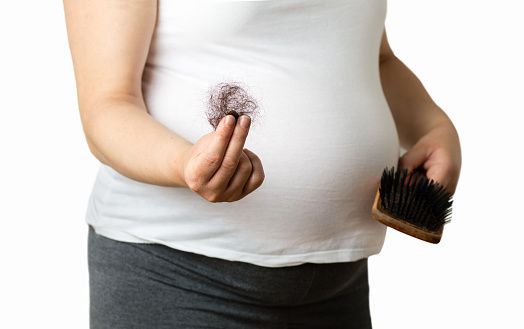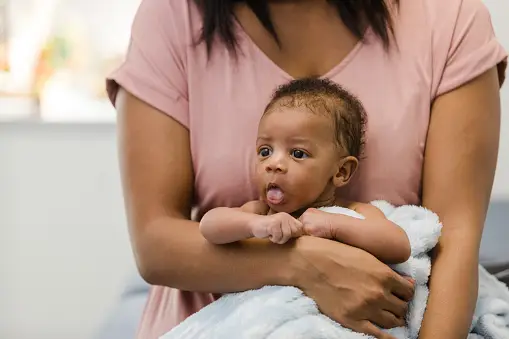Pregnancy comes with different experiences for different women. Some women gain more thick and lustrous hair, while for some, they lose the hair they’ve had, which could be in the form of bald spots, receding hairline, or loss of the hair, also known as alopecia.
A specific myriad of reasons can cause these situations. Therefore, it's essential to investigate the culprits of pregnancy alopecia.
Here are the possible causes of alopecia during pregnancy:
- HORMONAL CHANGES
During pregnancy, the rising estrogen levels naturally slow down the hair cycle and cause the hair follicle to shed slower, leading to thicker and fuller hair in pregnancy. However, progesterone levels would increase in some other situations, causing the hair to become more brittle. That brittleness in the hair can cause the hair to break from the root causing the appearance of the typical hair loss or alopecia.
- IRON LEVELS
Low iron levels would mean you do not possess enough red blood cells to carry oxygen around the body, leading to hair thinning. This could come with several factors, such as tiredness, shortness of breath, and migraines. You may only get your shine back once the iron levels are addressed, and you may get your shine back since hair loss stems from iron deficiency.
- UNDERLYING HEALTH ISSUES
The body experiences a lot of stress when carrying a child since it is doing a lot of work. This could increase your risk of specific issues such as gestational diabetes, hormone imbalances, and high blood pressure. Depending on how severe these conditions especially with hormonal imbalances, one could experience thyroid conditions that stem from too little thyroid hormone or too much thyroid hormone, which can cause hair loss.
- ALOPECIA CONDITIONS
Alopecia areata and Androgenetic alopecia are two alopecia conditions that may trigger patches of head hair or cause a pattern of baldness, respectively. In addition, some people may experience regrowth, while it's pretty unpredictable for some.
Treatment of Alopecia During Pregnancy
Most of the time, hair loss during pregnancy and even after requires no special attention. It usually resolves on its own and starts growing back again. However, in conditions such as hyperthyroidism or iron deficiency, you must meet your doctor to prescribe certain medications and supplements that will return the levels to normal and help your regrowth cycle.
After giving birth, you must be careful what medications you take into your body as some are unsafe for breastfeeding children or nursing others. Regardless, you must meet your doctor for directions regarding the drugs to take.
In addition, there may be a few safe remedies that you can do to lessen the hair loss experience, such as;
- Skipping tight braids, ponytails, or hairstyles that pull at your hair.
- Letting your hair rest without using harsh treatments which could damage your hair.
- Wash your hair gently and use a wide-toothed comb to prevent pulling your hair
- Eat a balanced diet that includes protein, iron, and other nutrients.
- Choose volumizing hair solutions and nourish your hair.
Conclusion
Losing your hair during pregnancy might not be overly familiar to pregnant women. However, it usually doesn’t mean any significant problems and would mostly occur due to hormonal fluctuations.
Certain women's hair grows out after pregnancy, while some mothers experience post-partum hair loss, which could come 4 four months after you’ve given birth. You should talk to someone about each of these situations and just know your hair will grow again.
If your hair loss has continued over an extended period or you notice other symptoms, contact your doctor.
Have you experienced pregnancy alopecia before? If you have, how did you deal with it? Tell us in the comment section below. We'd love to hear from you!
Remember to stay PreggSafe!










Comments